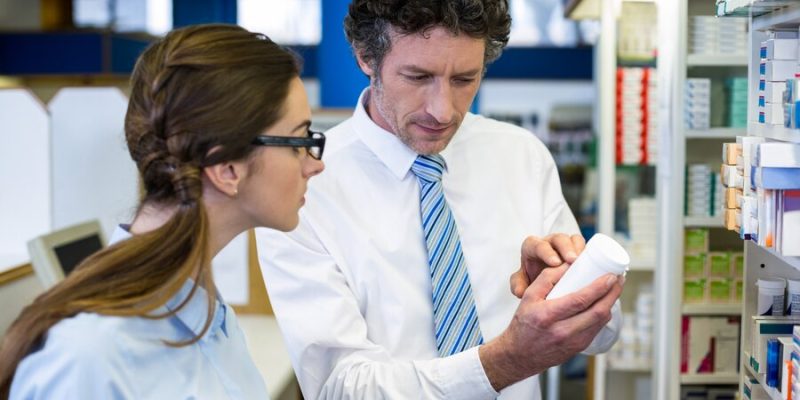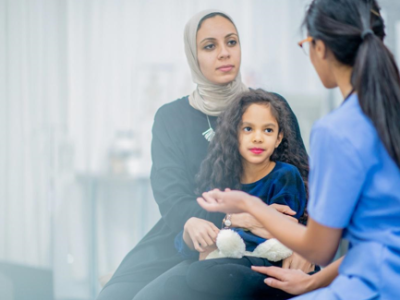
Anyone with a firm grasp of science and math should consider a pharmacy doctorate. Not only are the salaries highly competitive, but the career prospects are excellent while providing the opportunity to make a real difference in people’s lives. Regular working hours, stimulating and satisfying job tasks, interaction with people, and easy-to-manage work schedules can make a career in pharmacy more attractive than a job as a frontline physician.
Doctor of pharmacy programs (PharmDs) run over a three or four-year timeframe, combining on-campus learning, work experience, and in some instances, immersive placements to prepare students for frontline work. You can also enroll in an online pharmacy program from a reputable institution such as the University of Findlay and graduate with a pharmacy doctorate. Since 2006, all students must graduate with a doctorate in pharmacy before they can sit the licensure exams.
All pharmacy programs must now provide students with experience working in a real-life setting. This article outlines the benefits of immersive placements for student pharmacists, examining the state requirements for immersive placements, and defining the roles and tasks students might undertake while completing one.
What Are Immersive Placements In Pharmacy?

Besides coursework, assignments, and examinations in health and science subjects, including anatomy, medicinal chemistry, pharmacology, physiology, pharmacognosy, and toxicology, PharmD programs may include legal and ethics studies.
Experiential learning forms a central element of PharmD programs. Students have the opportunity to apply new knowledge and gain valuable work experience. Under the guidance of a college preceptor or licensed pharmacist, participants have the opportunity to expand their theoretical knowledge while putting new skills into practice. Introductory pharmacy practice experiences (IPPE) allow students to work in various pharmaceutical settings. Students on these placements acquire foundational skills and observe or participate in pharmacy practice in community pharmacies, private and public healthcare services, and hospitals.
In the final year of the programs, students participate in advanced pharmacy practice experiences (APPE), working under the supervision of a doctor of pharmacy or a licensed pharmacist. APPE work placements allow candidates the opportunity to perform patient-centered tasks. They gather core skills in counseling, collaboration, taking responsibility and initiative while defining professional judgment, gaining confidence, and learning to assess values and behaviors.
On completion, students will have the ability to counsel patients, work as integral team members, liaise with healthcare professionals, and apply excellent written and verbal communication skills. With optimal patient outcomes in mind, participants can subsequently create optimal pharmacotherapeutic and wellness regimens.
The number of required APPE hours depends on the educational facility, with most requiring one or more six-week blocks of 40 hours. Students receive no pay for their placement work.
Placement Requirements For Pharmacy Students
In 2016, the Accreditation Council for Pharmacy Education (ACPE) published guidelines for experiential placements, which colleges use to formulate their work placement requirements. A universal set of APPE requirements will likely emerge to streamline and standardize the quality and consistency of student work experience across the country in various settings.
While the minutiae of the placements differ from one educational facility to the next, all students must gain experience in the following four core pharmacy settings:
- Community pharmacy
- The healthcare facility or hospital pharmacy
- Ambulance patient care
- Inpatient general medicine healthcare
Students must complete placements in each of the above settings, gaining and applying practical knowledge in preparation for their future careers in pharmacy. They learn from their supervisors and pharmacy staff while learning how to put learned skills into practice in an everyday work setting.
Aside from the required APPEs, colleges offer PharmD students the opportunity to engage in one or more additional placements. They may work in patient care specialties, including cardiology, nutrition, diabetes, neurology, or outpatient practice, alongside all other care types. Some colleges allow pharmacy students to participate in research or administrative care.
Regardless of the settings, candidates must demonstrate the ability to work as valuable healthcare delivery team members. The immersive nature of the work placements translates into an indispensable work experience that allows future graduates to confidently step out into the workplace upon graduation.
The Benefits And Challenges Of Immersive Work Placements
Without immersive work placements, PharmD graduates would lack the actionable tools and practical experience necessary for a solid career launch. The benefits of immersive work placements are multifold, spanning from the development of empathy for patients and outstanding communication right through to the ability to collaborate while making a unique contribution to healthcare teams.
Students may discover their preferred pharmacy setting during immersive placements. They will learn about the challenges posed by different settings, as well as discover their own strengths and weaknesses in work. Students can enjoy the expertise and support of experienced pharmacy professionals in dealing with these challenges.
No amount of coursework and study can fully prepare students for the workplace. IPPE and APPE hours bridge the gap. However, the placements are time-limited, leaving graduates with significant ground to cover when they enter the workplace.
A 2017 study among immersive placement preceptors revealed concerns regarding the context and implementation of the placement goals. Preceptors described organizational barriers. Benefits may never transpire for various reasons, including time constraints, lack of preceptor training, and the operational methods of healthcare facilities, so it’s important that students choose placements that suit their needs as learners.
On-Campus Immersive Placements During Pharmacy Studies
Some PharmD program providers offer students the opportunity to participate in immersive on-campus training programs. They simulate various work settings, thus allowing students to gain hands-on experience.
On campus, candidates can work in a laboratory and dispensing or community pharmacies. They learn how to carry out sterile and non-sterile patient assessments and immunizations. Students may participate in interprofessional education (IPE) and work alongside one or two experienced pharmacy professionals.
Combining Theory And Practical Application
Immersive placements for PharmD students create a platform to implement the knowledge they have acquired during their studies. They merge theory and practice preparing students to join the workforce as skilled and valuable pharmacists. The IPPE and APPE requirements ensure a broad experience and prepare PharmD graduates for work in any pharma setting.
Read Also:












